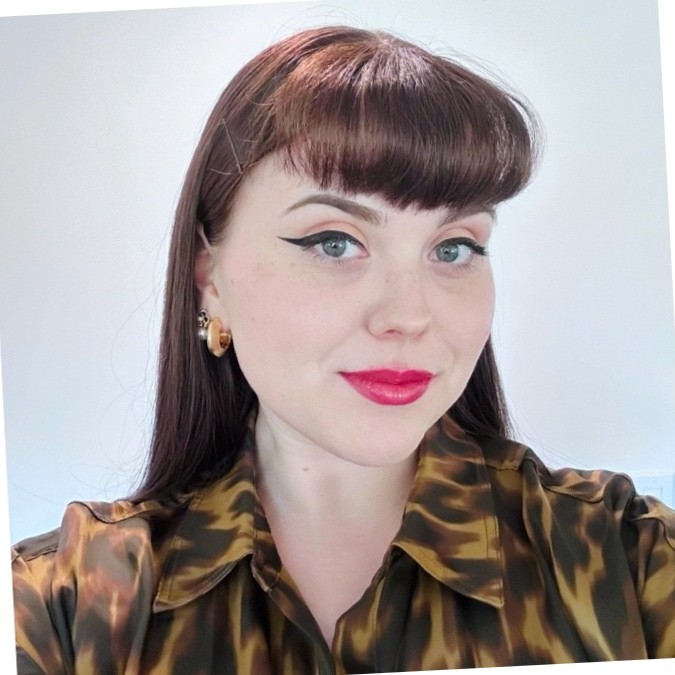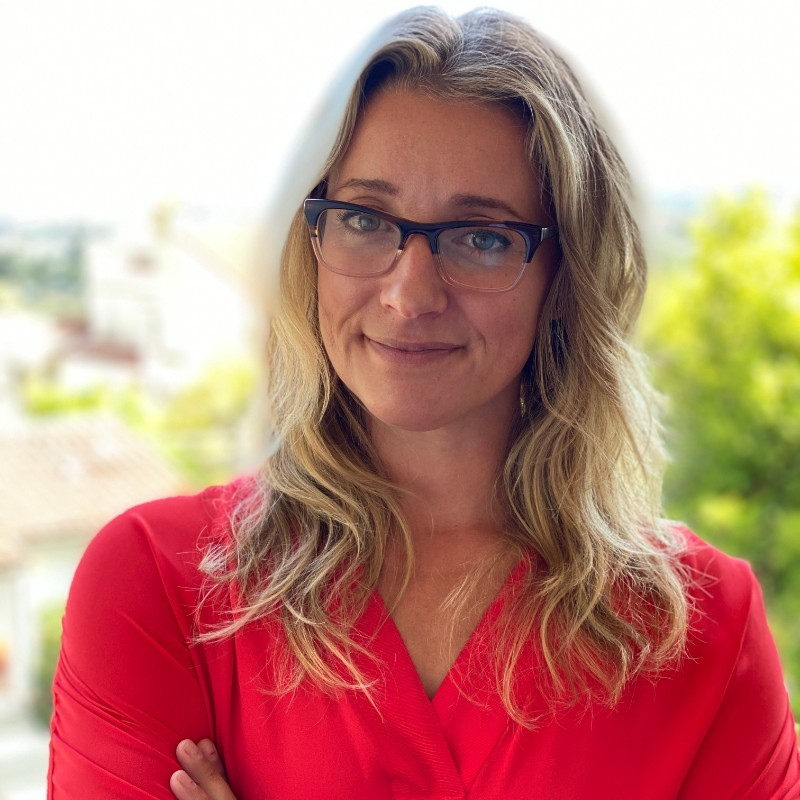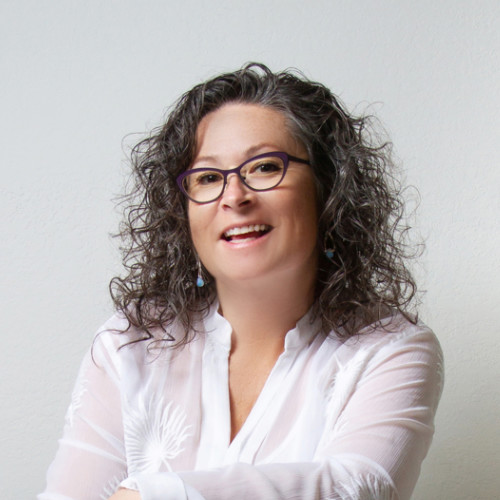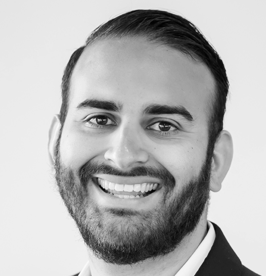ScienceMasters Series
Episode 1, PART 2: Health Equity in Clinical Trials: Featuring AstraZeneca's Jocelyn Ashford
Jocelyn Ashford, Head of US Corporate Affairs, CVRM, AstraZeneca
Interviewed by Jen Pfau, Director of Marketing, ScienceMedia
May 27, 2024
"This all comes down to understanding the specific needs of that specific community, and none of us are the same. It's not always a one-size-fits-all."
- Jocelyn Ashford, on successful approaches to engaging diverse communities
As the second annual Health Equity in Clinical Trials Congress closes, PART TWO of ScienceMedia's first episode of the "ScienceMasters" series continues to explore the pressing issues and strategies to strengthen health equity in clinical trials, featuring industry visionary, Jocelyn Ashford. As a Corporate Affairs and Patient Advocacy executive with over 20 years of pharmaceutical and biotech experience, Jocelyn addresses health equity barriers and offers key solutions for policy makers, industry stakeholders, healthcare providers and beyond.
The following is a transcript from ScienceMedia's Director of Marketing, Jen Pfau, interviewing AstraZeneca's Joceyln Ashford.
READ PART 1 HERE
JP: When we talk about cultural competency and sensitivity, I'm interested in understanding how healthcare providers could be more sensitive in recruitment and conduct.
JA: This always comes back to the idea of humanity. Just a reminder: we're all just human.
A lot of times, and I can be guilty of this myself, whenever you work in this industry, you are inundated with complicated information all the time. And even when you think you're explaining something in layperson terms, it can either feel overly simplified or still too complicated.
When it comes to thinking about cultural competency, sometimes it's just recognizing and understanding where you are culturally and what aspects of culture that you tend to exhibit and embrace. Its important to set aside those natural biases and really express a tremendous amount of purposeful interest in the other individual, because the more questions you ask, the more likely you are to be able to connect, even if you're coming from different cultural backgrounds.
To summarize, I would say, number one, I think just recognizing your own culture, where are your cultural biases that you sit with, that you could be projecting on the other individual. Listening and having a meaningful two way dialogue with that individual and asking great questions, I think is probably another aspect that I would very much highlight if I were talking to a healthcare provider right now.
JP: Have you seen successful approaches to engaging diverse communities?
JA: Absolutely. I think some of the best practices that I am aware of and have seen or even experienced myself have been from development of resources. Making sure that those resources that are being developed can support the various ways people learn without the assumption that people only learn one way, or another.
With respect to building trust in the community, I see great examples of building that relationship before the clinical trial is actually in place.
Identifying what are the unmet needs in that community and trying to address that before people are asked to do something. It's a lot like developing any relationship. You've got to deposit. You've got to put in deposits before you can make a withdrawal, where you can make an ask.
Whatever you've defined as that "diverse candidate" or underrepresented individual that you're looking for-finding someone that may match some of those characteristics to engage them and be a part of the process, whether that be the planning process, the execution of that process. I've seen some institutions where they make sure that their staff seems to be representative from a demographic standpoint of the community that they're looking to serve around various conditions, which is really important.
Methods look different depending on the community you're serving or the geography you're being placed in, because this all comes down to understanding the specific needs of that specific community, and none of us are the same. And while there are principles, there's a process that is really similar. It's not always a one size fits all, even though there are some really baseline things that we can do on a regular basis that will allow for more representative inclusion in clinical trials.
JP: And those baseline things, when we talk about practical barriers such as transportation or childcare issues, are there steps that healthcare providers can take to address that?
JA: When a sponsor is having a conversation or doing feasibility with the site, some of the things that would be great to ask is, are there particular unmet needs?
Make a pick list.
The people that you might be recruiting from in your general vicinity, what are their needs that you anticipate being potential barriers? Having that conversation with a site would be really, really valuable because I'll bet you the site could tell you what some of those are, because in their regular engagements with patients or through other studies that they've run, they've probably identified what some of those baseline characteristics are.
And some of those, to your point, are consistent across various sites. Transportation, appointment times, childcare.
Ask yourself, do you have lots of ways to communicate what's going to happen in the process and what their responsibilities are?
Can they read it? Do you need a specific size font? Do you need it? Do you need the informed consent to be read to them? Do you have low literacy levels in your geography?
Those types of things can be easily solved for at the front end of a study or even built into the design of the clinical trial or in the execution of that clinical trial, in collaboration with the sites.
JP: What policy changes or advocacy efforts do you believe are needed to promote health equity in clinical trials?
JA: On a policy level, I think that we're really moving in the right direction. With the FDA thinking a lot about the representative clinical trial and what that looks like, and making it practical-they're providing both.
They're really providing a carrot and a stick at the same time. So I think continued implementation of reinforcing things like the diversity action plans and really holding sponsors accountable for what that looks like and making sure that they're robust along the way, is really, really important.
I would actually love to see standards and take the diversity action plan even further, creating some consequences. I know that in extreme cases the FDA will say, you don't have a representative population here. It's not even close.
Maybe you've got some post marketing studies requirements that you have to meet.
Or sometimes a drug may not get approved unless they have gone through with additional studies.
But really spelling that out of what the consequences might be, I think would be a really strong value. From a regulatory policy perspective, I think that would be really important.
In my dream world, I would also think about quality metrics and quality outcomes. What if there were some type of mechanism to include clinical trials? Maybe not enrollment, but just having that conversation around clinical trials and patients as part of a quality improvement metric.
Because for some patients, clinical trials might be, and I hate to use the word, but for them, it may not be an option for them to get better, but it does allow them to think about, for example, with hereditary conditions, their family members that might live with this condition in the future.
So what if this were a component of really offering quality care to patients?
Bold idea, I'm pretty sure.
JP: So how can patient advocates, like yourself, work collaboratively with researchers, policymakers and industry stakeholders to affect meaningful change?
JA: I think this is happening already, and this is one of the reasons why I love this type of work, because when I started, that's when we were championing "talk to your advocacy organizations", because you'd see a lot of engagement in the rare disease space, but you didn't see a lot of that from a collaborative spirit aspect and the clinical trial execution and development in those larger conditions or more common conditions.
But today, we are well on our way to seeing what really great advocacy collaboration looks like. In fact, I think that we are at a point where on the healthcare focused advocacy organization front, we are starting to bring these advocacy organizations in early, building that trust, getting their advice.
They are the experts on these patient communities, both on the design of the clinical trial, the execution of the clinical trial, and understanding the patient perspective.
Where I would push us even more in this industry is how we engage with more of the community-minded organizations. Some of the organizations that may not primarily focus on health, but in some of the populations that we see are more consistently underrepresented or underserved when it comes to healthcare more broadly.
So how do we take what we know, what we do probably pretty well, which is healthcare education, and marry that with really community minded engagement and awareness and education? If you blend those together, I think that you will end up with trials that are much more rapidly enrolled and you'll end up with better materials at the end of the day to educate and engage along the way.
JP: How can the impact of community engagement initiatives and diversity-focused interventions be assessed and evaluated over time?
JA: That's a great question.
I really believe this comes down to how much work you need to do when you are ultimately enrolling that clinical trial? If you're doing that community outreach on a regular basis, let's say you are an institution or a site, and you are situated in a community that's in a rural area, how good of a job are you doing having those conversations early so that, when you are a site for clinical study and it's competitive enrollment, are you able to meet your goals and enroll your participants faster than anyone else, for example? That's an important one.
Are you able to enroll these diverse populations? Yes or no?
And then, of course, comes that aspect of just education levels. Are you able to understand the materials and follow along with the conversation around what being in a clinical trial means?
I would look at how quickly they enroll, so the rate of enrollment, and I would look at retention.
JP: Lastly, what are other offshoots of health equity that we should be talking about?
JA: I actually think low literacy would be a really cool topic to cover.
It's something that I know just because I'm working on a study right now at work where low literacy is something the FDA is really thinking about, and the restrictions that the FDA put in executing this clinical study makes absolutely no sense. We do a lot of research now.
We're thinking it's more top of mind that we're thinking about, like, race, ethnicity, culture, location. Those are things that everyone's trying to solve for.
About ScienceMasters series:
Welcome to ScienceMasters, your passport to the cutting-edge of clinical trials. Join us as we bridge the gap between innovation and impact, empowering listeners with knowledge that inspires change. ScienceMasters is your guide to navigating the ever-evolving landscape of clinical trials, where every discussion is a step toward a healthier future.
In each episode, we sit down with visionary leaders in the clinical trial space, unpacking hot topics and sharing insights that impact the patient experience, sponsors, sites, CROs, and beyond. From groundbreaking technologies to regulatory shifts, we uncover the pivotal advancements driving the latest research.

















